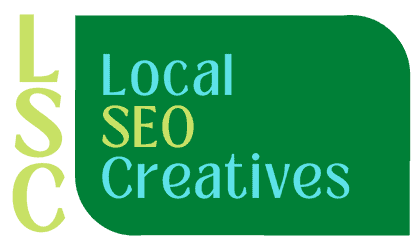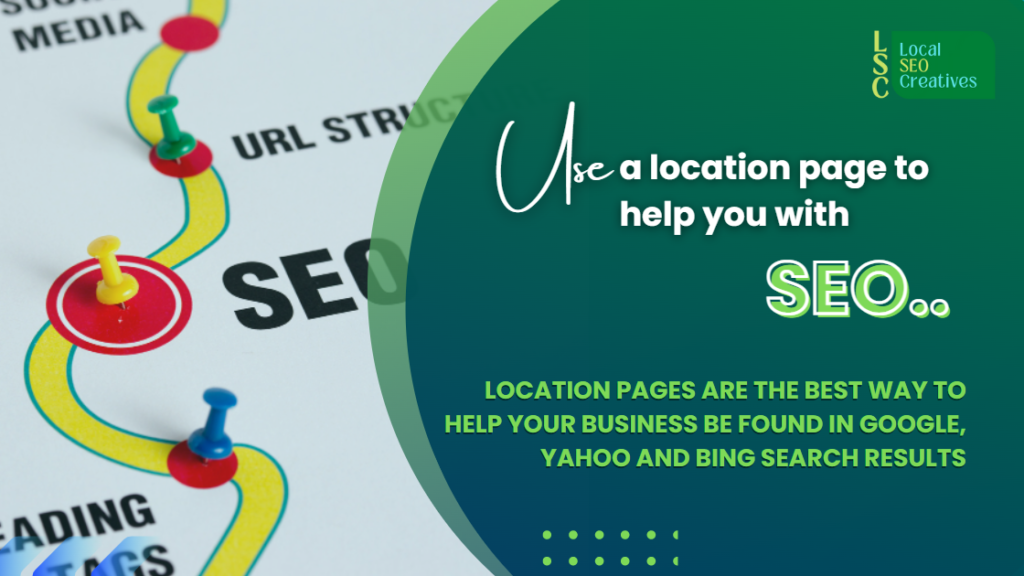Yes, a location page can help you with your local SEO campaign. It can and will help drive more traffic to your site. But there’s a few things you would need to know and understand when it comes down to creating a perfect location page on your website.
When you’re starting to build up your local search presence, it’s important to start thinking about all the different ways that you can use location as a ranking factor. The truth is that there are many more factors than just location, but using a local information page to rank better will help with your overall local SEO goal.
Using a location page to help you with SEO is a great way to increase your ranking in Google. It’s a page that is specific to a certain location or country and that serves as an information hub for people who are searching those places or countries. They will find the content they want on the page, and it’ll be easy for them to click through from keywords used in the title tag and meta descriptionhttps://localseocreatives.com/local-business-search-secrets/ of pages using these major locations as a keyword.
This helps you increase your traffic from searchers looking for your content.
How do you write a location page?
A location page is a page on your website that shows where your business is located. It’s important to have a location page because it helps search engines determine whether or not you’re local to them and where you’re located.
The first thing you want to do when creating a location page is you need to decide which city you want to rank for and then go about creating the content for it. The goal of the page is to convince search engines that your website has information about this city, so it’s important that you include high-quality information and links to other websites with relevant content. Once you have created your location page(s), make sure they are linked from every page on your website so that search engines can find them easily.
You can also use tags and keywords in your content to help them find the pages when they crawl through your site.
Second, make sure that the information on your page is accurate and up-to-date. If you’re using an address from another city or state, make sure you’re using the correct zip code (or postal code). Also, ensure that your address has the correct spelling and grammar. You don’t want to use “S” instead of “St.” Or if you’re in Canada, use the Canadian version of “street.”
You’ll also need to include images of your business and its location (Include photos of your storefronts), as well as other pertinent information about your business (like hours of operation and contact info for customers who might find them interesting).
Next, consider how you want people to find out about your business in relation to the search engine results pages (SERPs).
Think about what kind of content would be helpful for someone who’s looking for information about your business in relation to their location.
Finally, can use images and videos to help people find out more information about your company or its location by showing off different aspects of it that might not be obvious from just reading text alone (for example: pictures of customer interactions with employees),
What should a location page include?
A location page is a way to let users know where you’re located and what services you offer. A location page is typically used for local business—it should include:
- A map of your physical location
- A list of all available services at each location, including contact information (phone number, social medias, email address) and hours of operation
- A list of all subcategories of the main category (e.g., restaurants in [city name])
- A description of each subcategory (e.g., [city name] restaurants offer a variety of cuisines)
- Important information about what services or products you provide (Pricing, including monthly rates and a breakdown of what’s included in each term like services or products.
- A one-sentence summary of your business and a link to your website
- You can use any combination of images, text, and links to make your page look good and function properly.
What are Local pages for SEO?
Location pages are an essential part of your SEO strategy. Location pages are the best way to help your business be found in Google, Yahoo and Bing search results. They’re basically descriptions of your business that include information about what you do and where you do it. They help you increase the number of searches for your page, which means that more people will find it, and those who do will be more likely to click on the link and visit your site.
So if you’ve got a restaurant, for example, your location page might include information about how many stars it has on Yelp or Urbanspoon and what its hours are. It might also include reviews from past customers and links to social media accounts for the restaurant.
Location pages are also a great way to show off your brand’s personality, which can make it even easier for people to find you. Location pages are also great for making sure people know where your business is located before they get there!
What is a location page on Facebook?
A location page on Facebook is a way for you to quickly post about your business in a specific geographic location. It’s also an easy way for you to keep track of where your customers are based and what they’re looking for when they visit your business.
A location page is a special type of page that you can use to help your business be found by people who are looking for a particular location. It’s a way to tell people where they can go to find your business, and it’s especially helpful if you have multiple locations or locations in multiple cities.
You can create a location page by going to your Facebook Business Page, clicking “Settings” at the top of the page, and then choosing “Pages.” Now click “Create Page.” You’ll see a new screen where you can name your page. Make sure you enter something meaningful that relates to your location or business—for example, if you’re in New York City, try calling it “New York City” or something like that.
You’ll also want to make sure that you include the city or town name within parentheses on the front of your page so that search engines know what kind of business you are trying to advertise.
Once everything looks good (and that means no typos), click “Create Page” again. Now click through the next few steps until you get to “Customize Page Appearance,” where you’ll choose which types of content appear on this page:
How do you write location-based content?
Location pages are great for SEO because they help your page show up in Google when you search for a specific place. But writing about your location can be tricky. You don’t want to write about a place that’s too general, like “around the world,” but you also don’t want to write about something so specific that it doesn’t apply to anyone else.
To solve this problem, try talking about what makes your place unique from others—whether it’s an iconic landmark or a fun fact that only locals will know (like how much of their water comes from rain!). Then add in keywords that relate to those unique things, and make sure you use those words throughout your article.
You need to consider where your users are going to be when they search for your product or service. This might mean that they visit an event near you or it may mean they’re looking at a map of your area. Either way, you need to think about what information they’ll need in order to find the place they’re looking for and give them everything they could want—and more!
Content can be written in different languages, depending on what’s most relevant to your audience. For example, if you’re writing about a particular city or country, you might want to use language that speaks directly to that particular community.
But if you’re writing about something more universal—such as how to use the Google Assistant—then it may be more appropriate for you to use language that could apply to any location.
When you write location-based content, you want to make sure that it’s easy to read and understand. Here are five tips for writing location-based content:
Be specific. You can’t be vague about where something is happening, or even where someone is from. People want to know exactly what they’re getting when they click on a link or open up an article.
Be concise. It’s important to keep your sentences short and sweet, because when people are reading through their news feeds or scrolling through their tabs, they aren’t going to have time for long paragraphs of text!
Use short sentences. Not only do short sentences make things easier to read, but they also make things easier to copy-and-paste into social media posts—so don’t take this opportunity to get lazy!
Use short paragraphs. It’s great if you can write an entire article in five paragraphs or less; but don’t feel like you have to go that far if there are some longer sentences that need breaking up over several lines. If it makes sense with the flow of your text, go ahead and break
Another thing you can do when creating location based content is link from your small business blog. You can write about things that are going on in your service area. Be sure to check out our post about adding a small business blog and what can do to help you improve your local presence.
Once you get started in placing content on your location page you will notice things will start flowing and be sure to trust your gut.
Happy content creation!

